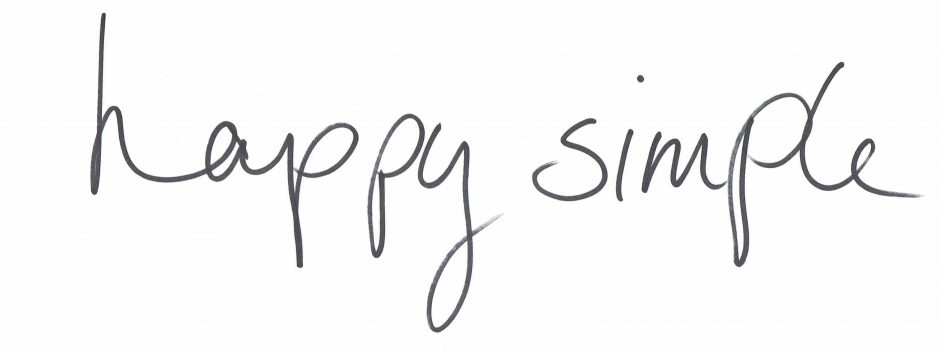
I’ve been attempting a difficult balancing act since we moved into our new apartment.
On the one hand, it was a clean, bright box when we got here and nothing needed to be done except keep it that way. On the other hand is the nesting instinct.
We have all the furniture and stuff we need and then some. And, in fact, even did let go of this piece. But I recently discovered the joy of houseplants (and what’s one more?) and there are things that would go really nicely in our new place. Plus, Spring is on its way (all evidence to the contrary) and that always makes me look askance at my wardrobe.
As a minimalist and someone who was raised to be a good Catholic girl, I have a deep ambivalence when it comes to desire. And I know that Catholics are not the only ones who view desire as something to be spurned or at the very least tamed. The Buddhists are pretty good at it, too. And the Calvinists.
After a lifetime of trying to avoid them, I’m finally realizing that I have desires and that that’s a good thing.
It doesn’t really matter if those desires are fulfilled or not. They come and go at a whim. The point is to have them, acknowledge them and really truly feel them. After a lifetime of trying to shun them, feeling desire of any kind seems like a radical act to me.
My upbringing, the way I was taught to view life, nipped desire in the bud so severely that it took out part of the plant with it. Every desire spurned lost a part of me. New clothes, new furniture, even new plants can be seen as silly and yes, many desires are frivolous. But desire itself is not. Desire is life. Which is why when I say desire, most of us think of sex. And many of us were raised to fear its power and maybe some of that fear is understandable because the accumulated outcome of those particular desires is seven billion people trying to live on a planet that’s better suited to one or two. But without any desire there’d be no life at all and that would be bleak.
We are taught that rising above our desires is noble, makes us less greedy, less materialistic than giving in. But maybe it just makes us sad. Parched without knowing it.
Acknowledging desire isn’t about acquiring more stuff. And it isn’t about sex. It’s about loving and caring for ourselves, nurturing the delicate, most tender part of ourselves.
There’s a vulnerability in wanting something you don’t possess, whether that’s a pair of colourful socks or a deeper connection to someone you love or a sense of comfort and safety in your own home. It’s admitting, “I don’t have it all together,” or “I’m incomplete,” or maybe even “Yes, I am in fact frivolous and shallow,” or that at least my hidden depths are accessed through these shallows, the ones that crave silly socks and cinnamon hearts for breakfast. And the spiritual practices that clumsily insist that we tame or deny our desires do violence to this vulnerable, tender part of ourselves. Because the thing to be tamed is our acquisitions, how we go about satisfying those desires.
And I do realize that a close reading of the literature will make this distinction, but in the hands of amateurs nuance tends to be lost.
Maybe instead of buying up every great pair of socks we see, we can have enough to keep our toes warm and then realize that our lust for colourful socks may be a lust for colour itself and we can honour that desire by taking ourselves to galleries and garden centres and walks in the park to drink in all those vibrant colours. We can admit to and honour and nurture our desires without laying waste to the planet or our own lives.
We can’t ever learn what it is we truly want in this life, where we truly belong in this world if we’re trained to run from every inkling of desire, if we’re taught that desire itself is bad or wrong or shameful. We just get disconnected from ourselves, from our souls, and end our days parched and sad and missing the whole point of being on this glorious feast of an earth.
And if we haven’t been raised to shun desire, if, instead, we give in to desire in the first guise it presents itself, we also miss the opportunity to learn from it, to figure out what our lust for the latest and greatest, whether that be fashion, technology or lover, is really trying to teach us. We end up drowning in the full onslaught but no more in touch with our selves, with our souls than this poor old Catholic girl who has run from the first stirrings of desire her entire life.
I remember, a gazillion years ago when my brother was getting married and my sister Chris and I wanted new clothes for the rehearsal dinner. My Dad must have been going through a stressful time, invisible to us, because he blew a gasket. We got a lecture about missing the whole point of marriage and how dare we make it about the clothes and beggars at the feast and Jesus! Jesus! Jesus! I mean, he pulled out his bible and read to us.
And then he handed over the car keys and Chris and I went to the mall. And in the dressing room, as we were showing each other our modest choices, she asked, “What are we supposed to do here? Should we not buy these?”
And I was so angry, my relationship with my Dad was at its nadir in those surly, teenage years, that I said, “Naw, fuck it. I have nothing to wear to this party. I’m buying the damned skirt. AND this blouse. And this one as well!”
What I didn’t understand until now is that Dad and we were actually on the same side, trying awkwardly to show Catherine and John our love and support of their upcoming marriage, Chris and I by wading into that particular pool in new finery and Dad by cannon-balling straight in to the deep end.
If any of us had had any understanding of desire back then, we could have said ‘bombs away!’ and let the other enjoy the moment. Instead there were grudges and sadness and because of that and many other moments like it, I still feel guilty every time I buy myself anything, from a pretty dress to a houseplant to a toothbrush. I feel like I don’t have the right to buy it and I’m wrong for wanting it. That I’m wrong for not having rooted out the source of my every desire.
But maybe now, with a bit of a better understanding (and what a lot of words it took to get here! Thank you for your patience!)I’ll be better able to navigate my desires, to applaud and support Alan’s. Better able to understand that desire is life and rooting out one eventually kills the other.






I desire you to keep writing. Hugs.
Thanks, Ann! I desire the same thing. Hugs to you.
Oh yes to everything you wrote. We’re asking ourselves very similar questions, having become increasingly interested in Buddhist philosophies. Through two ‘life practices’ we’ve adopted over the years (KonMari and Enoughism) we’re getting closer to finding a healthy(ish!) balance between responding to desire and not mistaking the pursuit of obtaining more things as a key to happiness.
One thing we’ve found ourselves doing is thinking about the ‘why’ behind a purchase. Yesterday, having reflected that even post KonMari decluttering, our mish-mash of plastic food storage containers is frustrating, ugly and joyless, I ordered new sets, in a new design. I don’t NEEEEEED them per se, but I do have a good rationale for getting them. They nest when not in use (as do the lids) and they stack properly when in use and sat in the freezer / fridge. Visually and practically they are far better designed than what we currently have and by buying these and letting our other ones go, I’m adding a little bit more simplicity into our day to day lives and therefore I think this acquisition was guided by a healthy, helpful desire.
Lovely.
Your provocative thoughts lead one to examine the differences between needs and desires and are they really different or just part of the human experience. It is difficult to rationalize desires but how it leaves you feel is a good measure – happy, angry, resentful, stressed etc. Thanks Barb for bringing this issue to light.